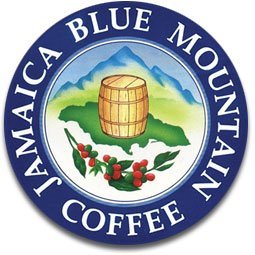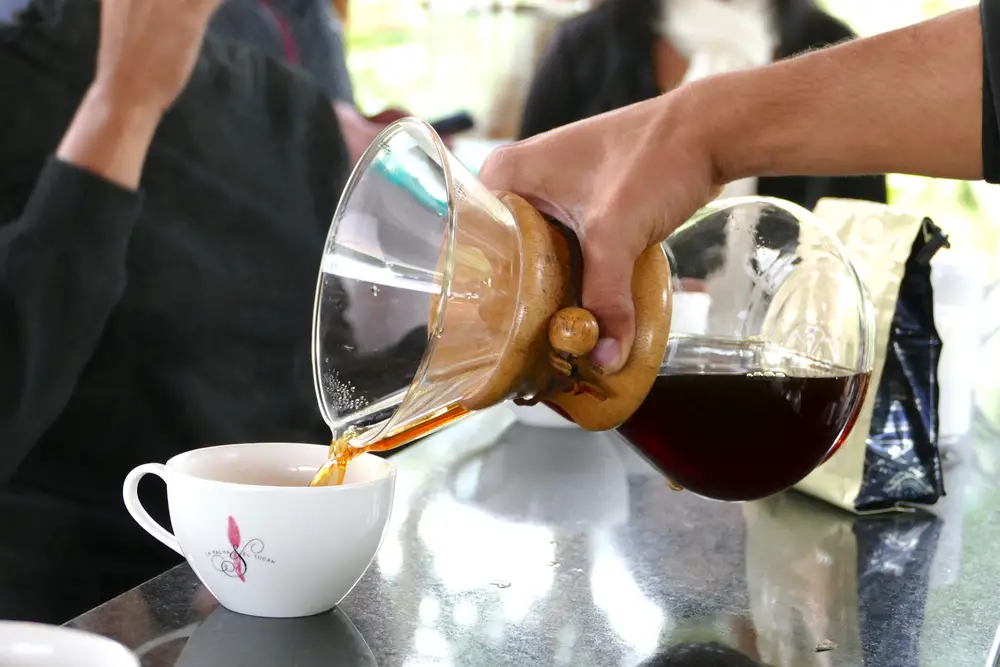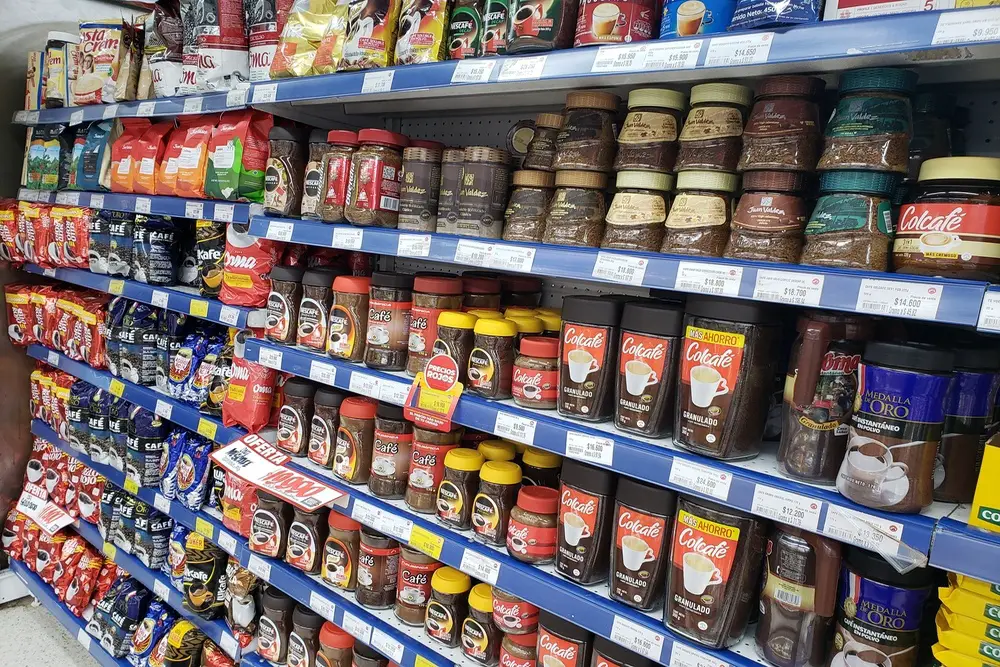Have you ever heard of Blue Mountain coffee? It is one of the most famous coffees in the world because of its high quality and high price. Read on to discover more about it.
Table of Contents
What makes Jamaican coffee so special?
First, let’s talk a little about the history of Jamaican coffee. To do this, we have to go back to 1728, where it originated. Sir Nicholas Lawes was responsible for bringing the first plants of this variety to Jamaica from the island of Martinique. Cultivation began in the central part of the island and then spread to the sloping terrain of Blue Mountain.
Coffee from this area was already considered better than from the rest of the country. However, it was this variety that made Jamaica so famous for its coffee. But it wasn’t always that way. In the midst of the boom, around 1940, the country had a hard time in the coffee industry. Producers lost their biggest customer at the time, Canada.
Faced with this situation, the country had to reinvent itself and refocus on the quality of its coffee beans. As a result, they created the Jamaica Coffee Industry Board (CIB), which is responsible for quality assurance, regulating production, and promoting the marketing of coffee. This makes their coffee special because not every farm can market coffee with this designation of origin.
Therefore, before exporting or selling to third parties, farms must submit their coffee to the CIB for evaluation to finally, if it meets all the requirements, receive the seal that guarantees it is Original Blue Mountain coffee.
Now you may be wondering…
Why Blue Mountain is so expensive?
The reason is that growing this coffee is not easy, and it is not as productive as other varieties so as to achieve higher profit margins. Also, the area where this variety is grown is not very large and there are only a few certified farms that are allowed to market it.
These strict quality controls, for which only a few farms are certified, as well as the difficult and careful cultivation practices, make Blue Mountain coffee a special variety with a mild flavor and other characteristics that you will discover below.
How is the coffee grown?
First of all, Jamaica stands out for not using agrochemicals in order to grow organic and environmentally friendly crops. This is currently a great commercial advantage since there are many customers who consume only products grown without chemicals.
As for the cultivation of this coffee, this variety lasts about 11 months in the seedbeds. Most other Arabica varieties stay there for only 2 months. After that, in mountainous terrain, it can take 3 to 5 years for the trees to bear fruit. In the countryside, all fruit is harvested by hand as soon as it is ripe and separated. The farmers pick the ripe cherries themselves, and there is a conscious decision to avoid machine production.
This is part of the quality they want to put as a seal on all their products.
The coffee plants are grown in the shade and it is a wet or washed coffee. This means that the coffee fruits are pulped before drying and the beans are then fermented in water tanks for several hours or days until the mucilage dissolves in the water. This directly affects the taste of the coffee, making it slightly more acidic and full-bodied compared to natural coffee.
Finally, after drying, the beans are subjected to strict quality control and classified according to size, color, and defects. They are divided into three groups, the first of which are the largest beans with the least defects.
Only the best beans can be packaged under the name of the most famous coffee in this region, Blue Mountain. This is transported in wooden barrels of 15, 30, or 70 kilograms. It is the only one exported in this form. However, the beans that do not meet the requirements to be classified as Blue Mountain are exported in the traditional coffee bags. This coffee is most commonly used for cold beverages in cans or to be consumed on the island.
Blue Mountain coffee zone
As already mentioned, the most famous variety is Blue Mountain. This coffee is so named because it is grown in the area of the same name. Let’s take a look at some other characteristics of this growing area.
| Location | It is located in the east of the island between Kingston and Port Antonio. |
| Altitude | Between 914 and 2,000 meters (2,998 – 6,561 feet) above sea level. However, the maximum altitude of the growing area is 1,700 meters (5,577 ft), since the rest of the land is protected as a forest area. |
| Average temperature | 29° C – 84.2 °F |
| Harvest season | Between September and May. |
In this area, you can find several farms that are open to the public, as it has become very touristy because of its coffee. The climate here is characterized by temperate weather with year-round precipitation. Moreover, the soil offers the best conditions for coffee cultivation. It is rich in nutrients and is excellent for the proper distribution of water. In other words, it has good drainage.
In this area, fog is an important factor for the development of the fruit. The soil heats up very much due to the high daytime temperatures, which, together with the constant rainfall, results in a dense fog that slows down the ripening of the cherries. Although this may seem negative in terms of productivity, it gives the cherries more time to ripen and develop better flavors.
For this very reason, many countries refrain from growing this Arabica Typica variety, as it has low productivity. Only about 200 to 300 kilos of coffee are harvested per hectare. For Jamaica, however, the quality of this variety outweighs all other aspects.
Coffee varieties in Jamaica
As we mentioned earlier in this article, Blue Mountain is the name of a growing region and also of a variety. It is the variety that belongs to the Arabica Typica genus and represents Jamaica. It is the most produced and exported coffee in the country.
Much of this variety is even exported because it can be too expensive for many islanders. Japan is the largest buyer, purchasing 80% of this export coffee. The remaining 20% is exported to the rest of the world, and only a small portion remains in the country.
Although it seems to be the only variety in the whole country, some other areas do not grow Blue Mountain coffee but produce other types of coffee. In general, one can say that there are only two types of coffee in Jamaica: the certified Blue Mountain and the rest. These other coffees are classified according to the altitude where they are harvested.
However, they are not only classified by altitude, but also by the soil and nutrients present in the cultivation of each variety, which can give it a different body, acidity or flavor. For example, growing coffee at 1,000 meters above sea level is not the same as growing it at 2,000 meters above sea level.
Jamaica Blue Mountain
It features a good balance between the light body and medium acidity. Also, it has a very penetrating and strong aroma with low caffeine content.
It has many floral notes and some flavors of herbs, chocolate, wood, and dried fruits that will linger on the palate for a long time. It is also sweet and has almost no bitter aftertaste. It is often used in blends to make smoother and sweeter espressos.
It is best when Blue Mountain is roasted to a medium or medium-high level. In this way, all the flavors mentioned above are preserved and the pleasant and strong aromas that characterize this coffee can develop.
Jamaica High Mountain
Also known as high mountain coffee. Despite having a similar name, it is good to know that this coffee is no longer Blue Mountain, but another coffee variety grown at an altitude between 457 and 914 meters above sea level.
Although it is not as well known and in demand as the previous variety, it is very popular for making cappuccino, latte, and some other milk-based brews.
It is cheaper than Blue Mountain but retains the characteristics of mildness and low acidity, ideal for brews other than espresso.
Jamaica Supreme / Jamaica Low Mountain
It is referred to as low mountain coffee. It’s called that because it’s grown in the lower parts of the Blue Mountain area. That is, on farms that are less than 457 meters above sea level. It is an ideal coffee for people who want a mild, everyday taste at a very reasonable price. This is the cheapest of all Jamaican coffees.
It is also a balanced coffee with no bitterness and is excellent for making filter coffee, but is not recommended for espresso or milk preparations. It is also used in other blends along with the original Blue Mountain to lower its selling price.
Therefore, it is important to know very precisely where the coffee comes from and what variety it is, so as not to be deceived.
Best Blue Mountain Coffees
Now that you know the history, how it is grown, and what makes this variety so special, here is a list of the best Blue Mountain coffees that you can buy without worrying about them being fake. There are many products on the market under this name, but they are not certified as such. So, if you are looking for a high-quality and certified product, you should take a look at the following recommendations.
Plantation Blue Coffee
Roasting degree: Medium
This coffee comes vacuum packed in foil bags to preserve the freshness of the beans. You can buy these beans in a bag for 227 or 454 grams of Blue Mountain coffee, which is enough for about 25 to 30 cups of coffee. The packaging looks like a small traditional coffee bag, making it a real eye-catcher.
This company is dedicated solely to the commercialization of Blue Mountain coffee.
Coffee Traders LTD
Roasting degree: Medium
This coffee also comes in a package that resembles a small coffee bag. You can buy it as beans or ground coffee of 227 grams. The coffee is very creamy and smooth and has an intense flavor without any bitterness. It is not only Blue Mountain certified, but also Fair Trade certified.
Flamstead Estate
Roasting degree: Medium
This brand is named after one of the most recognized, traditional and certified Blue Mountain coffee farms. It is located at 1,000 meters above sea level in an area where there are several certified farms.
You can buy this coffee in the presentation that best suits your needs and tastes. You can get it in beans, ground for drip coffee, ground for French press, or ground for espresso. It is available in 227 grams, 453 grams, or 5 pounds.
Clifton Mount Estate
Another coffee from a very traditional and well-known coffee producer. It has been around since 1970 and is located on Catherine Peak. This farm is located at the peak of the coffee-growing area. This means that this particular coffee has a slightly higher acidity. It has a soft taste, a penetrating aroma, a balanced cup, and a quick finish in the mouth.
You can find it in beans, ground in three different degrees and in a packaging of 453 grams or 5 pounds.
Volcanica Coffee Clifton Mount Estate coffee
Roasting degree: Medium
If you’ve ever been on the lookout for the best coffees in the world, you’ve probably come across this brand. Volcanica Coffee is an American company that distributes more than 130 coffees of different origins and varieties from all over the world. Among them, there are two Blue Mountain coffees.
This farm, as mentioned before, is known for producing rather acidic coffee. It is one of the most expensive products on the market, but it is definitely worth it.
The coffee has a fruity taste with a balance between acidity and the strong aroma that characterizes this coffee. It is also certified by the Rainforest Alliance to guarantee its quality and the way it is grown.
Cameron’s Coffee Capsules
People who love a quick coffee with plenty of options for daily brewing often opt for a capsule coffee maker. However, this doesn’t mean that you can’t enjoy high-quality specialty coffee. These capsules come in a pack of 12 and preserve the taste and aroma of the original Blue Mountain coffee.
Don’t forget that it is also CIB certified, so you can’t go wrong with these capsules. In keeping with Jamaica’s commitment to the environment, these coffee capsules are compostable. That means they don’t come in plastic packaging. Instead, they are made from an organic material that produces no waste – one of the big problems with capsules.
This American company is one of the few that offers this wide variety of capsules. It’s a creamy, smooth coffee with intense flavors and a hint of sweetness.
How do you know you’re really buying Blue Mountain coffee?
Since it is an expensive coffee, it is prone to imitations. Therefore, here are some basic recommendations on how to determine which are the originals.
- The price: The first thing you should know is that this coffee is one of the most expensive in the world. So if you see a very cheap coffee, you should be convinced that it is not the original. In general, one can say that if 500 grams are $20 or less, it is not the original.
- Packaging: True Blue Mountain coffee must be grown, roasted and packaged in Jamaica. It can be marketed under foreign brand names but cannot be processed outside Jamaica.
- Blends: This type of coffee is very common in Jamaica and around the world. They only use a certain percentage of real Blue Mountain and the rest can be any coffee. That doesn’t mean the coffee is bad, in fact, it can be very good. But it is not Blue Mountain. Since there are no regulations for these coffees, the percentage of original Blue Mountain may be so small as to even less than 10%.
- Certification seal: This is probably the most important point. Packages without this seal are not Blue Mountain coffee. It can be a blend or something else, but not the original. This seal consists of a circle with a picture of a mountain, a barrel, coffee beans, and a small map of the country inside. So, you know you are buying original Blue Mountain coffee when it has this seal.
What is the best way to enjoy Blue Mountain coffees?
There is no rule to enjoy this coffee. However, we believe that because of its profile, this coffee is best brewed in a French Press or other drip coffee maker.
Coffee prepared this way can absorb all the flavors of freshly ground coffee. The hot water penetrates the coffee and extracts its natural oils, which provide a pleasant mouthfeel.
This coffee is also very suitable for cold brew coffee machines, which are specially designed for making cold brew coffee. As the cold water is in contact with the coffee for several hours, the characteristic fruit flavors are wonderfully extracted.
And if one country’s coffee is not enough for you, we have more recommendations:



